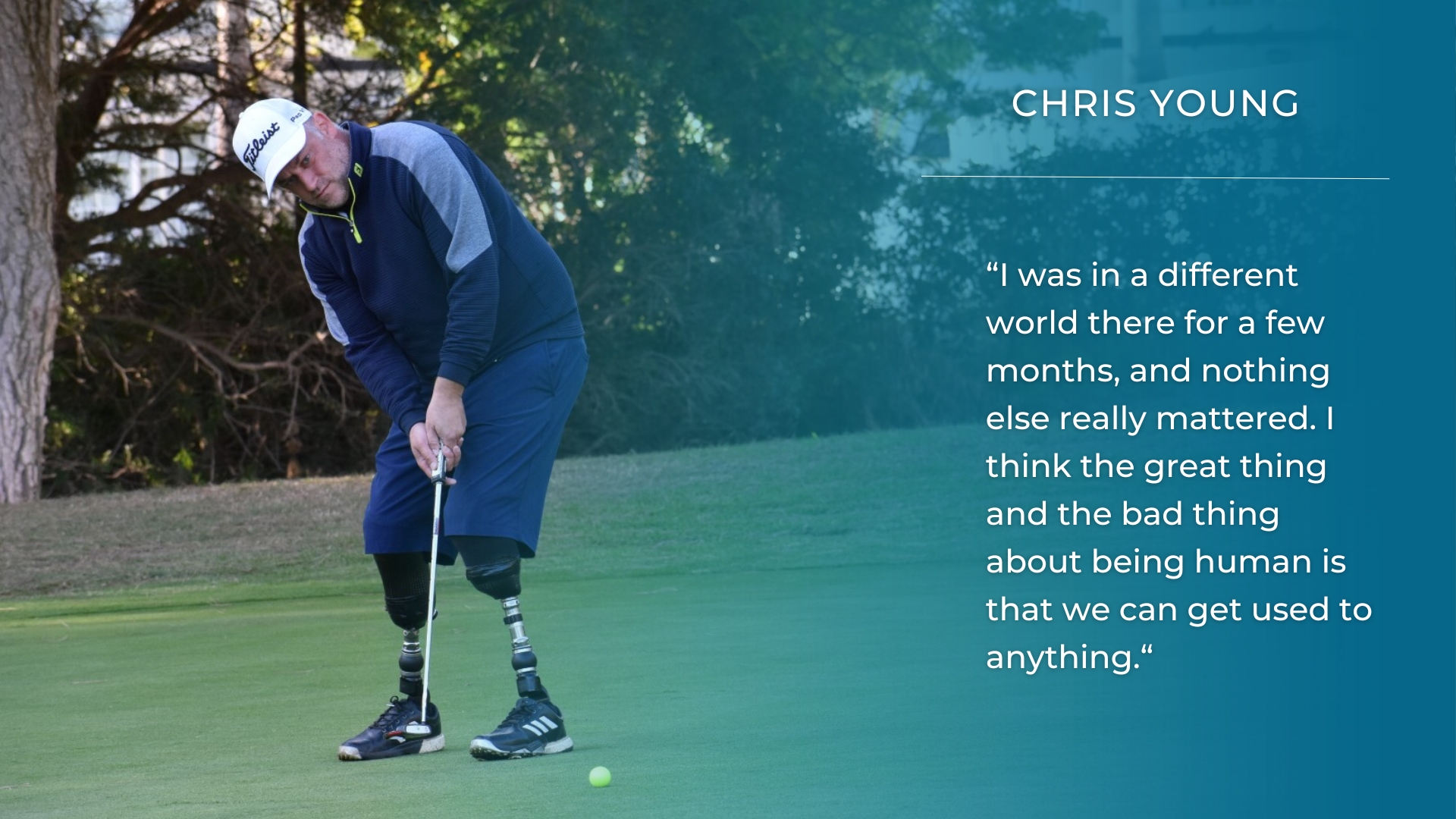Audio:
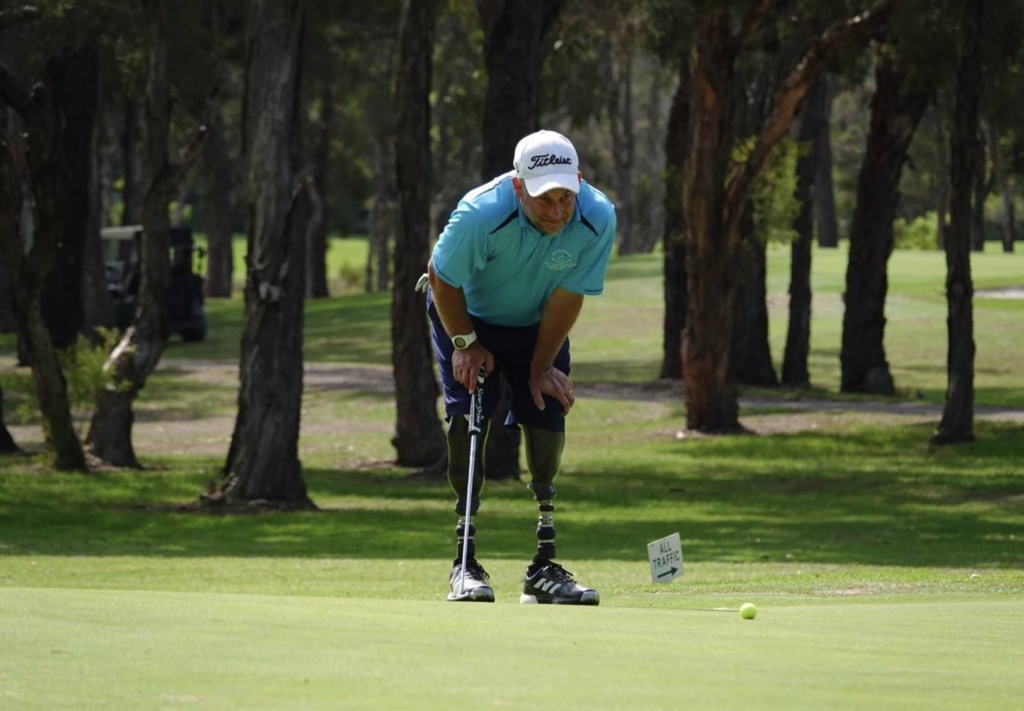
“You might not survive this surgery, or you might not wake up for a very long time,” are the last words that Chris Young remembers hearing, in August 2012.
Chris was born in Canberra, where his Dad had opened the Zoology department at the Australian National University. He grew-up in the outer eastern suburbs of Melbourne, which is arguably the sporting capital of Australia. Like any boy of that time, and as the middle one of three brothers, he was into cricket, Aussie Rules Football and soccer and so spent most of his time chasing a ball around.
Golf was also on the menu, both to watch and play. This was when Greg Norman, the ‘Great White Shark’, was dominating the game in the ’80s and ’90s. As world number one for more than 330 weeks, it is fair to say that Norman captured the attention of even non-golfers with his athletic physique, blond hair and attacking style of play. Golf, being an affordable working-class game there, attracted Chris and he started to play, initially with his mates just for a knock about, but he would return to the game some years later for very different reasons.
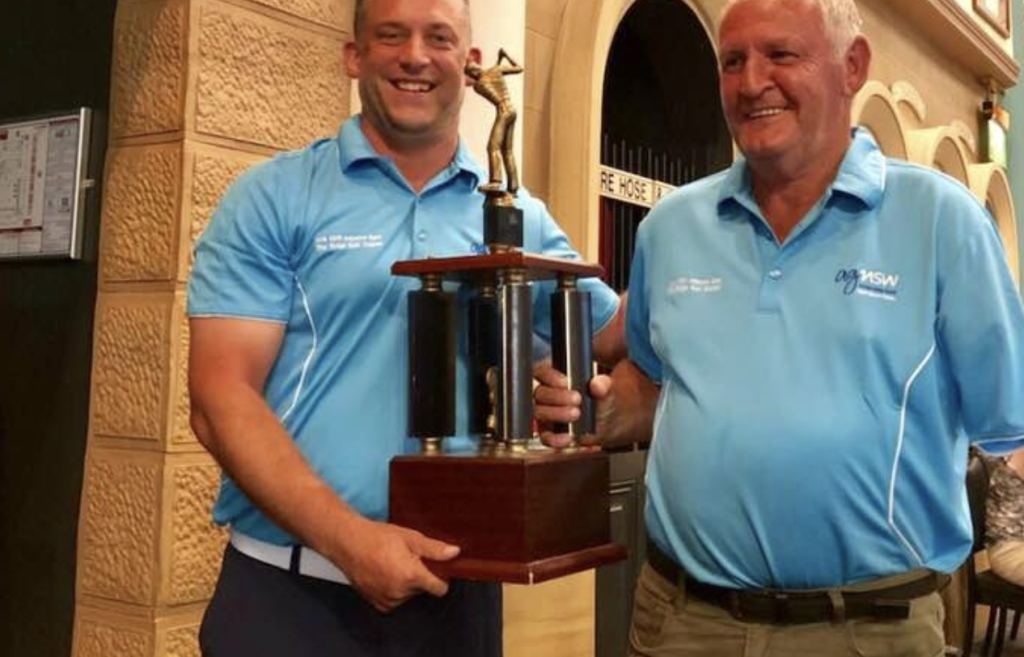
As both his parents David and Rosemary were from Britain, it is hardly surprising that Chris would have the occasional sabbatical there. He loved the vibe, which was very different from back home. On one such visit he was offered a place studying music in the city of London, and so started a 12-year stay. Studying during the day, playing guitar when he could get gigs, Chris realised that he needed a steady income and so got a job at the local McDonalds. Once his feet were under the table there, he realised that the fast-food colossus had a management programme. Chris applied and was offered a place, “I liken the programme to working for the army it was a very regimented place to work, and it was good. If you worked hard, you got rewarded and I enjoyed that. That got me interested in business, which until then I had no interest in.”
Starting in Operations Management, Chris eventually moved to the McDonalds division for training, learning and development programmes. He spent three years learning all he could at work, while planning ahead with his new wife. Life tends to settle down, and with the social aspects of golf, where he would often play with work colleagues together with his friends at the West Indian Cricket Club, it all meant that Chris was following his former passions albeit 17,000 kilometres away from where they first started. Although the pair loved life in Britain, Australia was never too far from their thoughts, and Sydney seemed like the right place to bring up their young family.
Here, Chris threw himself into a new job, as a training manager for a consultancy firm, where he could work with business owners and franchisees to help them maximise their performance. He soon found that he would be working all hours, “I was working way too hard. I’m very focused on work. I was enjoying it. We were doing some work with the US at the time, so I was up very early doing conference calls at 5:00 AM and stuff like that. I had three kids, my youngest was six months old at the time. So, I think it’s fair to say I was a bit run down and I came down with flu symptoms. I remember it distinctly; it was August 2012. Have you ever had your teeth chattering when you have the flu? Luckily, I was working from home that day anyway, and so I just got on with things, but I felt lousy.”
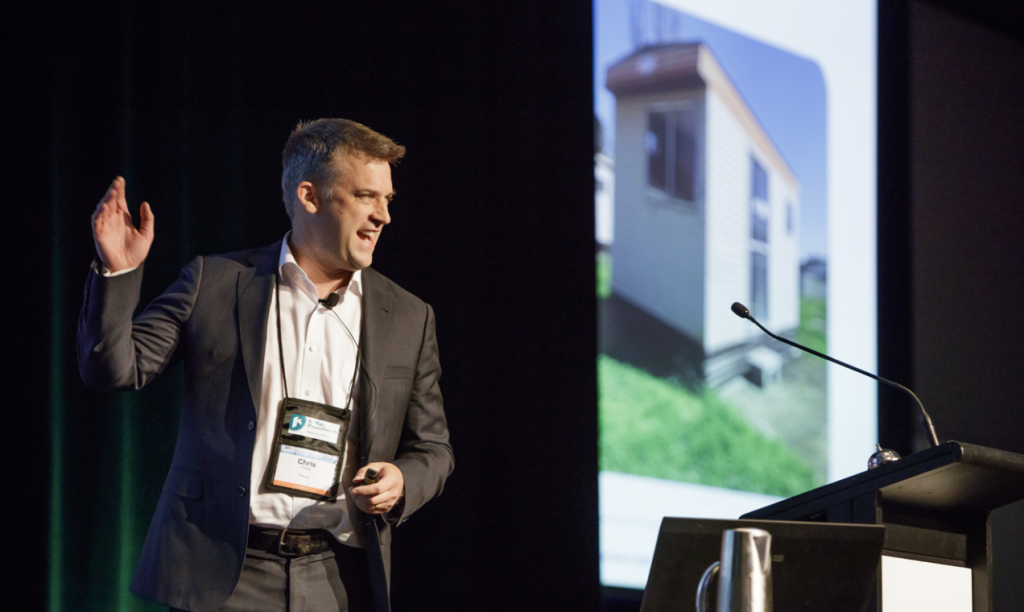
Chris called in sick, went to the doctor, was told that it would take a few days to pass and so prepared for a few days of recovery. The first indication that it was a bit more than flu came when he could not face dinner on Saturday evening, and then, “I couldn’t sleep that Saturday night. I was just too uncomfortable and started developing pain in my left leg just below my knee. I said to my wife, look, I’m going to go to the hospital. I need to get some pain pills for this.” Typically, Chris did not want a fuss and drove to a small local hospital as he thought he could park right outside of the entrance, get in and out quickly and then get back home.
The wait in the emergency room was particularly difficult. Chris would walk the floors of the ER for a while, get uncomfortable, then sit down before becoming restless, stand up and start pacing again. So the cycle continued. Saturday turned into Sunday and by Monday morning, Chris was facing surgery for a fasciotomy as he had developed a condition called ‘compartment syndrome’ in his left leg, which is a build-up of pressure. It was then he realised that it could be fatal after receiving the less than reassuring words that he may not survive.
Chris had contracted a rare, but deadly form of streptococcal septicemia, and it was attacking his body from inside. The infection was causing all his organs to fail, except for his brain and heart. Chris returned from surgery in a coma which would last for a long time. In fact, the next 48 hours he spent in intensive care were touch and go, as family and friends all gravitated to the hospital to pay their last respects. Chris was oblivious to all the commotion and was simply in a fight for his life.
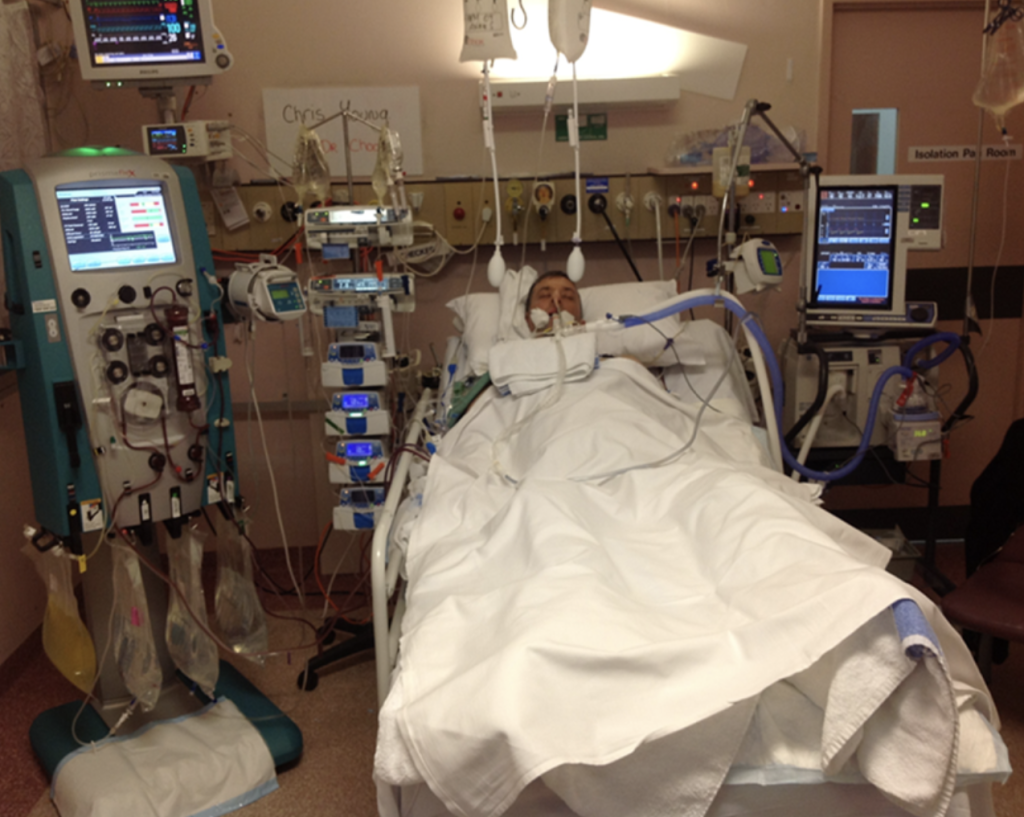
Despite the odds, Chris slowly started to improve and over the next couple of weeks was well enough to be brought out of the coma. “When I woke up, I figured I was waking up from the surgery you know a few hours or something like that. I’m told this is common, but it took people a long time to convince me that it was, in fact, two weeks later and all this stuff had happened.”
Chris is grateful to the doctors who he says were “fantastic, and probably saved my life,” but is equally appreciative of the nurses who were there every minute of his time in hospital. “The nurses were just incredible; they were so genuinely happy to see me. I’d never seen these people in my entire life. They were so excited to see my recovery and they knew my whole story because they had spent the last two weeks with my family, you know, going through these ups and downs.”
The elation of knowing he had survived and beaten death, soon turned to the practicalities of preparing for a new life. The streptococcal septicemia had caused gangrene damage on his hands and feet. The left foot was beyond saving and was still endangering his life. Still, with a severely affected right foot and with damaged hands, Chris was faced with stark choices of which parts of his body he would have to sacrifice and which to try and save. “That was a really scary and upsetting couple of weeks really. I had just come through the worst of it and had to resist the temptation to go crazy with amputations. The rule was, if it’s not endangering my life, we’re not cutting it off until we see what happens.”
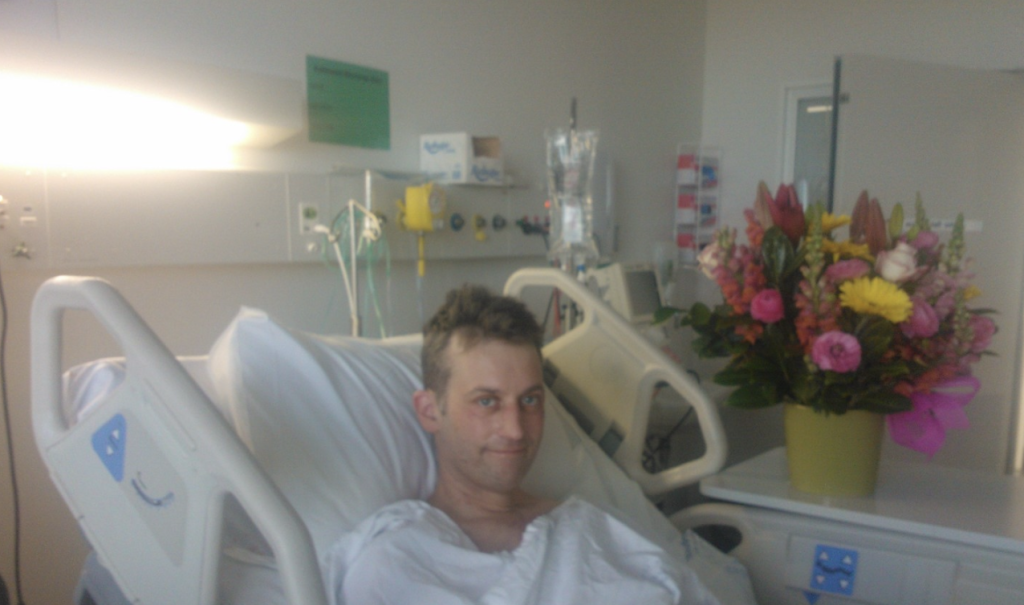
Chris is thrilled that he decided against amputation of his hands, which he can use to work on a computer and to play his beloved guitar, even though it was against some medical advice. After the best part of two years, he elected to amputate his right foot, “That was a very uncomfortable period. I had 14 surgeries on that foot, and some of them were horrific, like having half a foot removed and waking up with no toes and no heel and your bones sticking out. I can tell you now without a shadow of doubt, I have a better quality of life because of the amputation. So even though at first it seems counterintuitive to want to remove bits of your body, I would have no qualms in recommending amputation to someone else in the same position.”
Chris is reflective and has clearly learned a lot about himself during the time since August 2012. “I was in a different world there for a few months, and nothing else really mattered. I think the great thing and the bad thing about being human is that we can get used to anything. So, you can learn to play golf with prosthetic legs, you can learn to deal with discomfort and still be happy. But I think the downside is that we can take things for granted. I think what I actually miss about that time is the feeling of just how great it is to be alive. You know, just looking at the tree outside of the window, I could burst into tears with happiness. It’s a really heightened emotional time. I actually miss that sometimes when you get back to life and getting the bills paid on time and employee problems, or whatever it might be. So, it was actually really nice, a sort of midlife crisis, reset, whatever you want to call it.”
Had it not been for Lesley Soloman, the hospital’s occupational therapist, Chris may have ended up in another sport. Chris believes that people are generally good, and although it is often the bad things that get publicity, there are lots of people who are genuinely kind and super helpful. Steve Smith who runs the New South Wales Amputee Golf days is just one. It was Steve that took Chris under his wing, made him feel welcome and encouraged him to get back into golf, “It was definitely a turning point for me. I think. Anyone who has any sort of mobility issue, the real temptation is to stop moving. And I think any medical professional will tell you once you stop moving, you’re in trouble. So for me then and right up to today, golf helps keep me moving. Anyone that has amputations will tell you that you have very few perfect days. There’s always something going on with your legs and it’s never 100% comfortable.
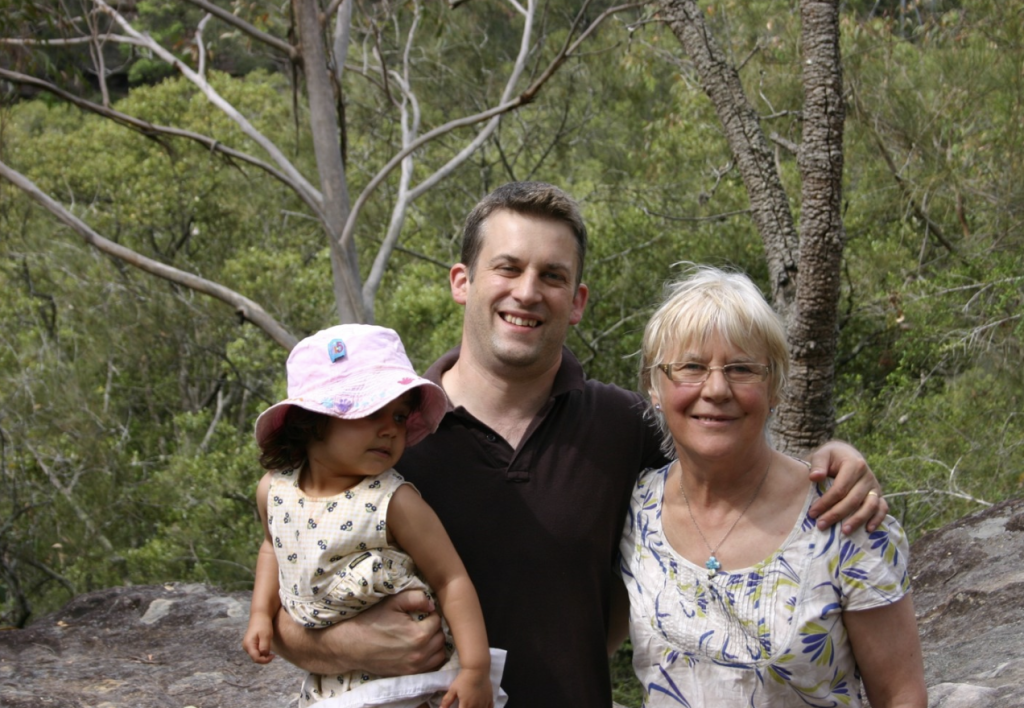
“The easiest thing would be to lie on the sofa and watch the cricket or whatever. But knowing that I’ve got a golf tournament coming up or knowing I’m going to meet some friends to play golf or even just going out on my own to be at a beautiful golf course for a few hours, just gives me that motivation to get up and go through the discomfort barrier.”
Chris is happy to share his story in the hope that it can help someone who may face a similar crossroads in their life. He regularly speaks with people in the North Shore Hospital in Sydney where he had spent much of his recovery time. He tries to give the patients some positive news and encouragement, telling them, “In the long-term everything’s going to work out, you can be happy in your new physical form, so don’t worry about it. There are millions of us around the world all doing fine, so don’t panic, trust that it will be okay. I think that’s an important thing to know when you go through that experience because there is a lot of fear.”
Chris had never previously been aware of people with amputations until he ‘joined the club’. The interruption in his life was life-changing, and yet with a smile, he says that was a time when he was having his toenails done. “In all areas of life, we’re seeing more and more good examples of people with a disability who are achieving great things or just being happy. Hopefully, we can change the stigma that it’s not the end of life, yes, it’s a change, and it has its downsides. Still, it really does not stop you living a full and happy life, unless you decide to let it.”
Contact EDGA
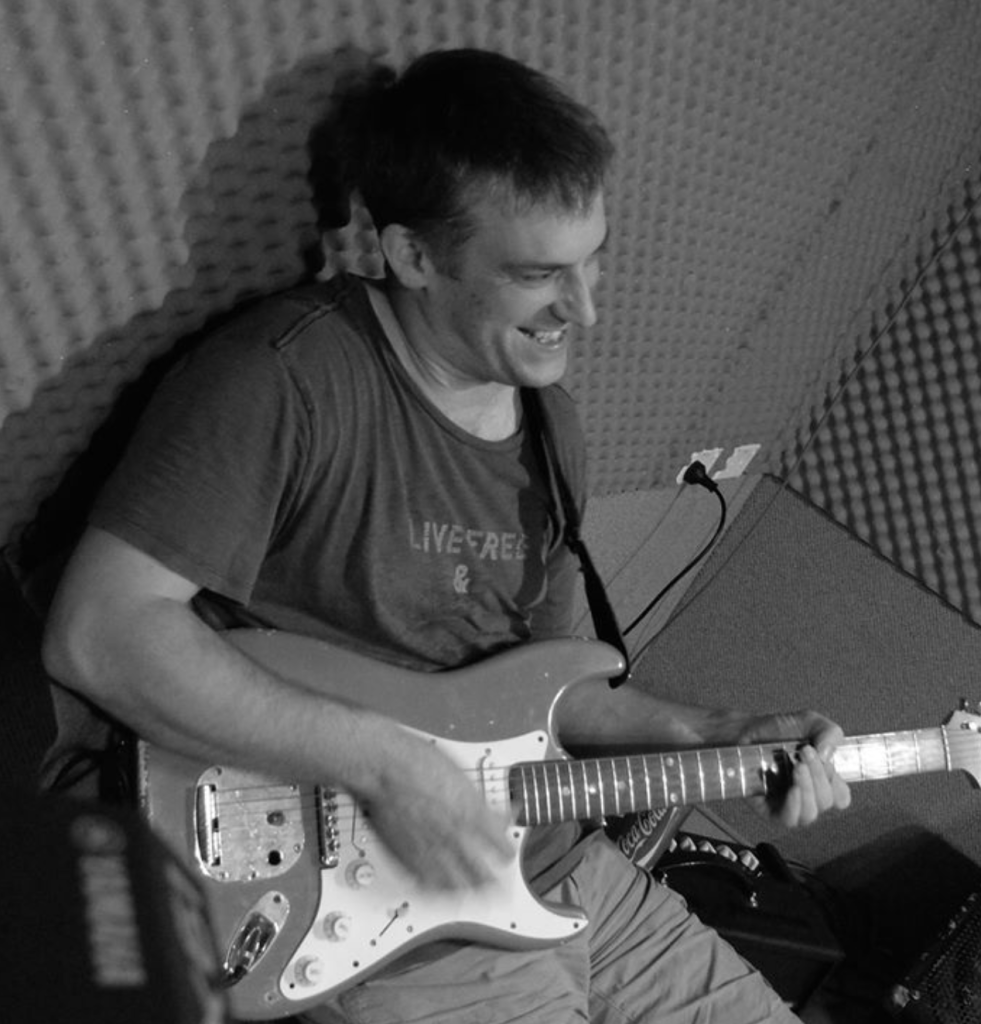
NB: When using any EDGA media, please comply with our copyright conditions


